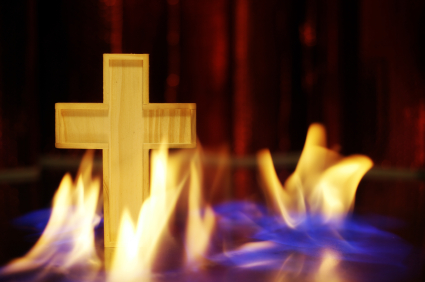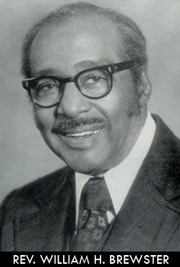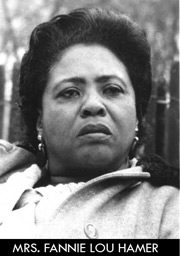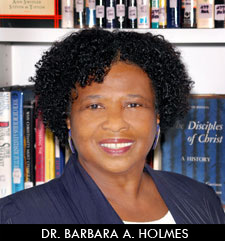|

REVIVAL II
CULTURAL RESOURCES
Wednesday, August 19, 2009
Bernice Johnson Reagon, Lectionary Team Cultural Resource Commentator
I. Introduction
It is hard to comprehend all of the pain that black people have endured in this land. So much cannot be understood. Thinking back on watching my parents make it through, it’s hard for me to fathom how they made it. Through it all I know that we only made by grace. When I remember all that our foreparents endured, I still believe. I believe in justice. I believe in the grace of God. I believe.
I Remember I Believe
I don’t know how my mother walked her trouble down
I don’t know how my father stood his ground
I don’t know how my people survived slavery
I do remember, that’s why I believe
I don’t know why the rivers over flow their banks
I don’t know why the snow falls and covers the ground
I don’t know why the hurricane sweeps through the land every now and then
Standing in a rainstorm, I believe.
I don’t know why the angels woke me up this morning soon
I don’t know why the blood still runs through my veins
I don’t know how I rate to run another day
I am here still running, I believe
My God calls to me in the morning dew
The power of the universe knows my name
Gave me a song to sing and sent me on my way
I raise my voice for justice I believe…1
II. Rev William Herbert Brewster: Depending on Prayer And Faith
Chorus:
I am leaning and depending on the Lord
Oh yes I’m leaning
Leaning on the Lord
and depending
Leaning on the Lord
On the Lord
Leaning on the Lord
On the Lord
You know I may not have a friend
Jesus said he’d go with to the end
That’s why I’m leaning and depending on the Lord
Verse:
Sometimes I look for friendship
And all my friends a gone
Sometimes I try to stand up for right
I find myself standing all alone
You know I may not have a friend
Jesus said he’d go with me until the end
That’s why I’m leaning and depending
On the Lord…2
 Rev. William Herbert Brewster was one of the great innovative twentieth century gospel composers. He was born at the end of the nineteenth century and grew up in a strong church family. Brewster writes powerfully about how God was merciful to him even as a child and gave him revelation when he needed it. Although he knew he was a Christian from an early age, he was not initially accepted for Baptism because he never had what was called a "sign." The elders of the church would not accept his testimony. The child Brewster had a strong prayer life and read the bible as a companion. About his being sent back until he received a "sign" he said: Rev. William Herbert Brewster was one of the great innovative twentieth century gospel composers. He was born at the end of the nineteenth century and grew up in a strong church family. Brewster writes powerfully about how God was merciful to him even as a child and gave him revelation when he needed it. Although he knew he was a Christian from an early age, he was not initially accepted for Baptism because he never had what was called a "sign." The elders of the church would not accept his testimony. The child Brewster had a strong prayer life and read the bible as a companion. About his being sent back until he received a "sign" he said:
Now, I believe in shouting and all that and I did my portion of it, but not until I had a sensible seeing and hearing faith. I accepted Christ and was baptized… I came up out of the water—and God has agencies through which he accomplishes his greatest miracles—a man who was not a preacher said, “This boy has got to be baptized? He’s going to be a preacher. There is preacher all over him.”
When Brewster’s mother became ill he was the child who took care of her, and one night after he had gotten her to sleep he went to the window and looking at the stars asked, “Am I the son of sorrow?” This language was from the Genesis story of Benjamin, first named Beohim, "the Son of Sorrow." But God showed him mercy and Brewster tells how the Lord spoke to him:
I went back and looked at my mother lying there sleeping and I laid my head down on the pillow by her and heaven opened up. I’m glad I didn’t know education, because a lot of times education makes you a poor Christian. I laid my head on the pillow and the heavens opened, and I saw as it were-- a band of angels, and it appeared they were descending, their garments, the fringes were sweeping the hilltops. They came down above me, and one came down with an open book and said, “Go ye and preach the gospel.”
It disturbed me so, because people didn’t allow a kid to preach… . For a solid week, I fasted and prayed. I prayed on a Saturday night before the last Sunday, September 1914, and prayed and asked for a sign, because that is what people went by, and that is what ministers were called by and Christians were converted by. That’s what Joseph did in the Bible, and Abraham and Isaac and Daniel—all the major prophets and the minor ones, and even Jesus Christ himself.
Finally I said… Lord if you want me to go, wake me up at four o’clock. I went on to sleep and later on something shook me and I got out of bed…. I looked at the old grandfather clock, ticking loudly and I couldn’t see it, it was dark in the room. …. I had to get some paper and wrap it together and make a lamplighter. I lit the paper … and when I did look up, it was four o’clock, it was a striking clock and it struck four times….
I went in to my dad’s room and there he was sitting up there waiting for me. He said, “Come on in, son. I know the Lord has called you to preach, nothing to do but do what he said to do.”3
III. Songs about the Grae and Mercy of God
Throughout this unit there are various responses to the mercy of God given in testimonies. The following responses to God’s mercy are given in song.
At Calvary
Years I spent in vanity and pride
Caring not my Lord was crucified,
Knowing not that it was for me he died on Calvary
Mercy there was great and grace was free
Pardon there was multiplied to me,
There my burdened soul found liberty—At Calvary
Verse four
O the love that drew salvation’s plan!
O the grace that brought it down to man!
O the mighty gulf that God did span at Calvary
Mercy there was great and grace was free,
Pardon there was multiplied to me,
There my burdened soul found liberty—At Calvary.4
Your Grace And Mercy
Your grace and mercy brought me through,
I’m living this moment because of You;
I want to thank You,
And praise You too;
Your grace and mercy brought me through.
Your grace and mercy brought me through.5
Great Is Your Mercy
Great is your mercy towards me
Your loving kindness towards me
Your tender mercies I see
Day after day
Forever faithful towards me
Always providing for me
Great is your mercy towards me.
Great is your grace.6
IV. Fannie Lou Hamer And a Song to Revive You
 Fannie Lou Hamer, organizer, orator, singer, and Civil Rights Movement leader in the 1960s Mississippi Civil Rights Movement recounts a story at a mass meeting. She had been evicted from her home on a plantation after trying to register and vote, she had been arrested and beaten while in jail but she continued her work. Hamer talked about black people who allowed fear to keep them from becoming a part of the Movement. She recounted her own experience of having a bomb exploded right over her bed where her head would have been one night in the house where she was staying. She told the crowd, “But, you see, I was not home that night. God is good, those that seek to save their life are gone lose it anyhow…” Fannie Lou Hamer, organizer, orator, singer, and Civil Rights Movement leader in the 1960s Mississippi Civil Rights Movement recounts a story at a mass meeting. She had been evicted from her home on a plantation after trying to register and vote, she had been arrested and beaten while in jail but she continued her work. Hamer talked about black people who allowed fear to keep them from becoming a part of the Movement. She recounted her own experience of having a bomb exploded right over her bed where her head would have been one night in the house where she was staying. She told the crowd, “But, you see, I was not home that night. God is good, those that seek to save their life are gone lose it anyhow…”
It was from Mrs. Hamer that I learned the song she had learned from her grandmother. This song supported leaving, running on even at the risk of failure. Again and again, there were those who struck out on faith running for freedom, and we sang these songs in hope that they would continue to fight for freedom. Tired, hungry, and in need of eagle wings they ran on and on…
Oh Run
Oh run run mourner run
Bright Angels above
Run run mourner run
Bright angels above
If I had two wings
Bright angels above
If I had two wings
Bright angels above
Eagle lend me your wings…
If I just had your wings…
I would fly away to the kingdom.7
The lesson from Mrs. Hamer’s grandmother and the song is that the transformative future is beyond your understanding of what you are capable of. It is not until you step out on a path that leads you to a place you have never been that you can hope to find new ground and renewed life. This is part of what is at the core of revival.
If we listen to the voice of God, we are constantly revived for the next phase of the journey even if it is one that is surely filled with danger. Yes, we may get weary but this is when the Spirit of God can revive our souls to help us run on.
V. Barbara A. Holmes And a Lesson from the Story of Hagar
 Theologian Barbara A. Holmes writes about Hagar in her work Joy Unspeakable Joy: Contemplative Practices of the Black Church. In this lesson Hagar, at a point of desperation for the survival of herself and her son, calls to God and God answers with water and nourishment and a promise not only of survival but forthcoming generations. Theologian Barbara A. Holmes writes about Hagar in her work Joy Unspeakable Joy: Contemplative Practices of the Black Church. In this lesson Hagar, at a point of desperation for the survival of herself and her son, calls to God and God answers with water and nourishment and a promise not only of survival but forthcoming generations.
Hagar is the slave of Abraham and Sarah. When Sarah does not get pregnant, she sends Hagar to sleep with her husband and Hagar brings forth a child Ishmael. Then Sarah gets pregnant and there is dissension that results in Hagar and her son Ishmael being sent out into the desert with little food and water. Holmes points out that though the desert is a place of renewal, it is also a place of death. When they are without water and food Hagar calls to God.
There is within our oral tradition a saying that goes: Child! What’s wrong with you? You sound like hollering Hagar! This state is one that begins with a response of deep anguish and pain, so great that initially there is no sound, when the sound comes it is alarming and the child is gulping for air.
Holmes tells us that it is when “Hagar pauses to contemplate, in that stillness God meets her under the tree.” God promises Hagar that her son will have descendants and land… . Hagar names the God who spoke to her, you are El-roi (the God that sees), or translated in African American oral prayer text, “Lord you know me and you know my condition.”
After Hagar’s encounter with God, she is changed. No person can see God and remain the same. She returns but not the same. She is freed in spirit, because she has seen God and received God’s promise that her son will people a nation.8
God’s merciful grace is sufficient. It can revive us in every desert in which we find ourselves.
Notes
1. Sweet Honey in the Rock. “I Remember, I Believe.” Written by Bernice Johnson Reagon. Sacred Ground. Redway, CA: EarthBeat! Records, 1995.
2. “Leaning and Depending on the Lord.” Brewster, William Herbert.
3. Reagon, Bernice Johnson. “Rememberings: Interview of William Herbert Brewster.” We'll Understand It Better by and by: Pioneering African American Gospel Composers. Washington, DC: Smithsonian Institution Press, 1992, pp.189-191.
4.“At Calvary.” By William R. Newell. African American Heritage Hymnal. Chicago, IL: GIA Publications, 2001. p. 246.
5. “Your Grace and Mercy.” Text and tune by Franklin D. Williams. The African American Heritage Hymnal. pp. 270-271.
6. McClurkin, Donnie. “Great Is Your Grace.” The Essential Donnie McClurkin. New York, NY: Verity/Legacy, 2007; “Donnie McClurkin - Great Is Your Mercy (live).” Online location: http://www.youtube.com/watch?v=ODmHMKfD_iY accessed 12 March 2009.
7. Fannie Lou Hamer. “Songs My Mother Taught Me.” Cassette recording. Smithsonian/Folkways Recordings, and Smithsonian Institution. Voices of the Civil Rights Movement Black American Freedom Songs, 1960-1966. Washington, DC: Smithsonian Folkways, 1997.
8. Holmes, Barbara Ann. Joy Unspeakable: Contemplative Practices of the Black Church. Minneapolis, MN: Fortress Press, 2004. pp. 130-132.
|